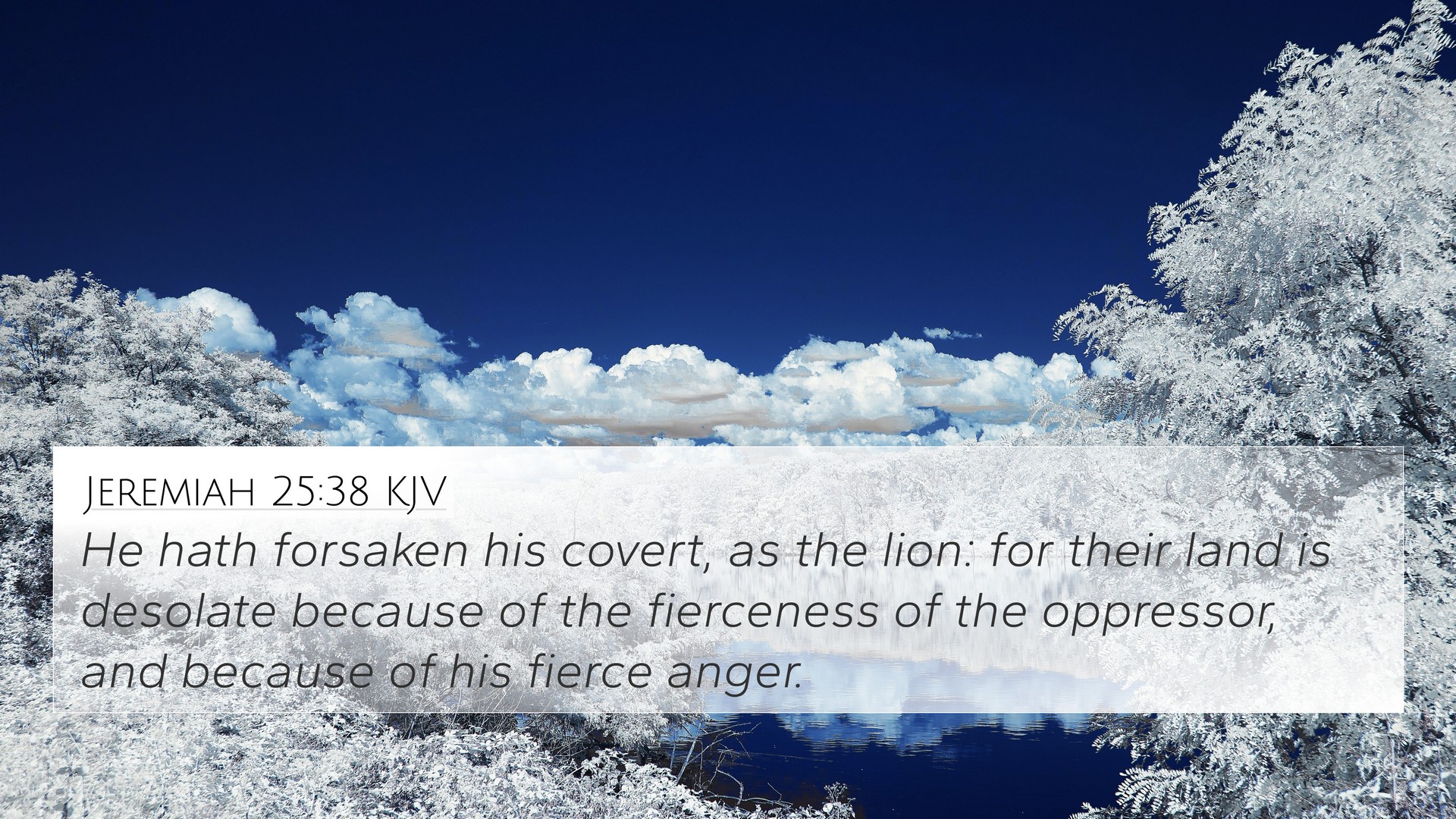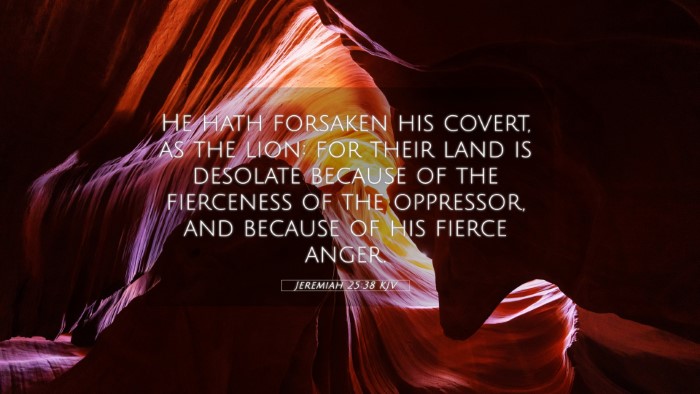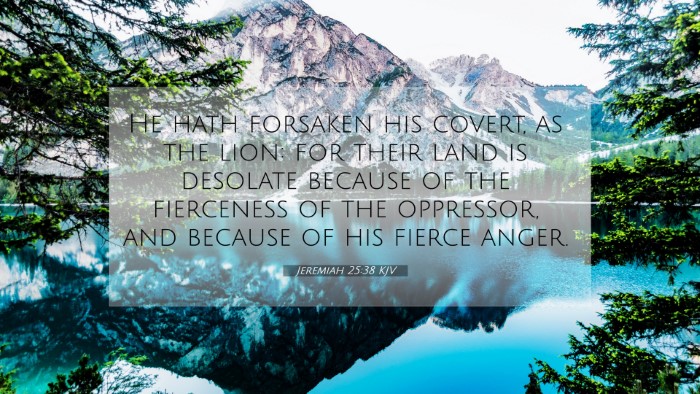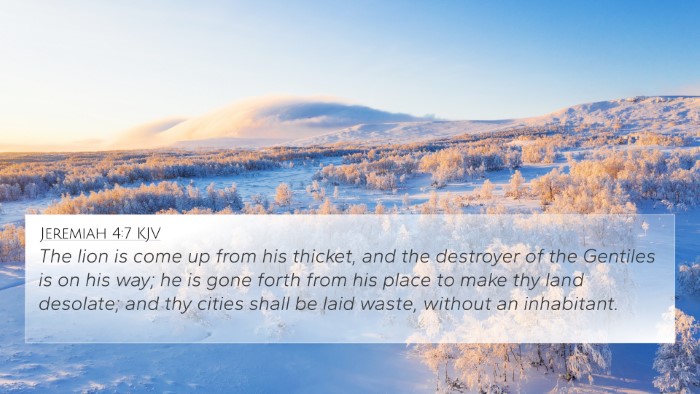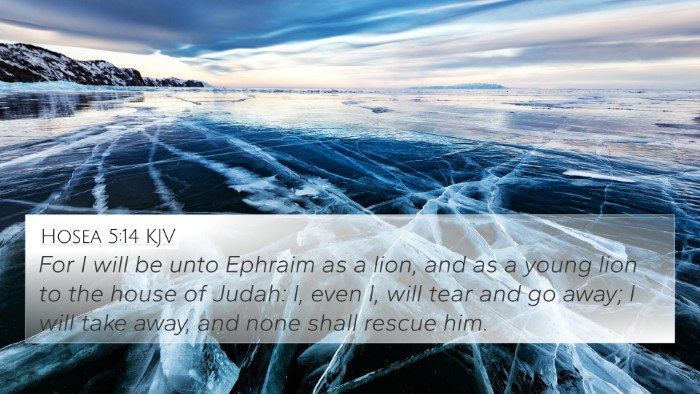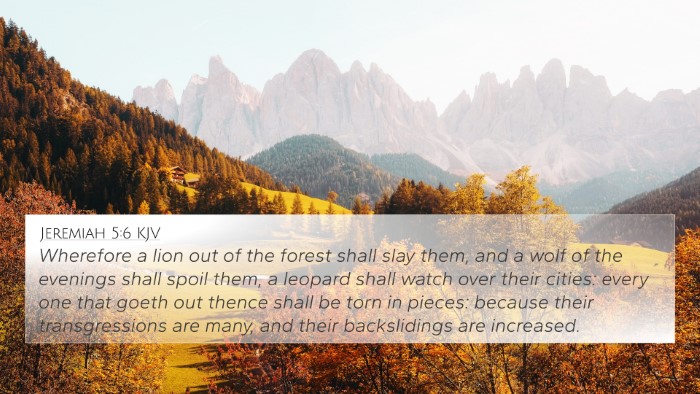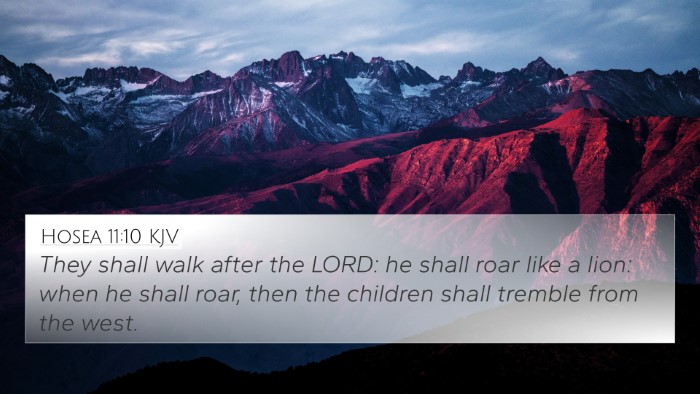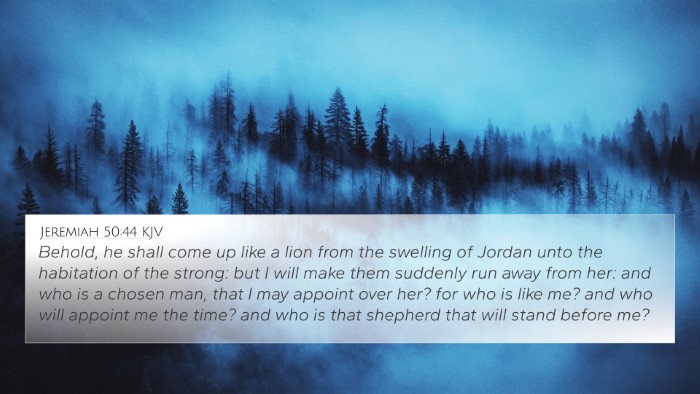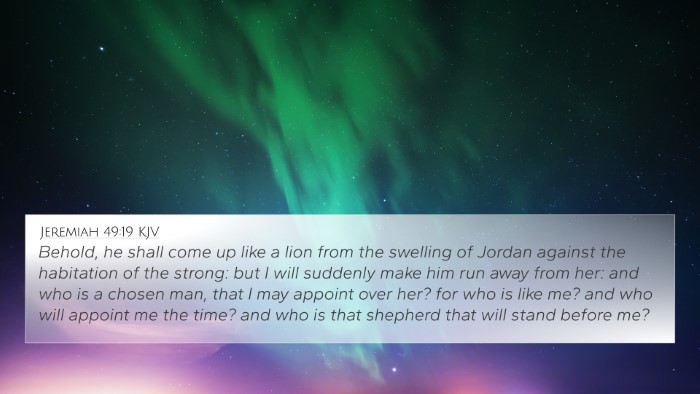Understanding Jeremiah 25:38
Verse: "He hath left his covert, as the lion: for their land is desolate because of the fierceness of the oppressor, and because of the fierceness of his anger." (Jeremiah 25:38)
Verse Meaning
This verse from the book of Jeremiah uses vivid imagery and metaphor to convey profound theological themes. The positioning of God as a lion ready to leave his den indicates a period of divine judgment and impending destruction upon the land. The "fierceness of the oppressor" refers not just to human adversaries but symbolizes the fullness of God's wrath unleashed upon the nation due to their continuous disobedience and sin. Here’s a summary based on the insights from public domain commentaries:
Matthew Henry's Commentary
Matthew Henry emphasizes that the imagery of a lion signifies strength and gives a sense of urgency to the consequences faced by the people. God's abandonment in this context suggests a period where divine protection is removed, leading to desolation. The fierce anger signifies that God is bringing judgment upon those who have strayed from His decrees.
Albert Barnes' Notes
Albert Barnes reflects on the desolation of the land as a consequence of unrepentant sin. He notes that this desolation is not merely physical but also spiritual. The fierce anger reflected here signifies a culmination of long-standing disobedience, reinforcing the idea that divine patience has its limits and judgment follows when those limits are crossed.
Adam Clarke's Commentary
Adam Clarke suggests that the metaphor of the lion departing from its lair indicates a shift from silent observation to active judgment. Clarke outlines that this passage encapsulates the total withdrawal of God’s protection, implying that, without divine oversight, the land becomes vulnerable to destructive forces, leading to its desolation.
Bible Verse Cross-References
- Lamentations 3:44: "Thou hast covered thyself with a cloud, that our prayer should not pass through." - Reflects absence of divine favor.
- Joel 1:15: "Alas for the day! For the day of the LORD is at hand, and as a destruction from the Almighty shall it come." - Connection to the day of judgment.
- Isaiah 31:4: "For thus hath the LORD spoken unto me, Like as the lion and the young lion roaring on his prey..." - Similar imagery of God as a lion.
- Ezekiel 22:31: "Therefore have I poured out mine indignation upon them; I have consumed them with the fire of my wrath." - The theme of divine wrath parallels Jeremiah's message.
- Micah 5:8: "And the remnant of Jacob shall be among the Gentiles in the midst of many people as a lion among the beasts of the forest..." - The juxtaposition of divine judgment and protection.
- Matthew 23:37: "O Jerusalem, Jerusalem, thou that killest the prophets, and stonest them which are sent unto thee..." - Here, Christ laments over the city, relating to the judgment theme.
- Revelation 6:16: "And said to the mountains and rocks, Fall on us, and hide us from the face of him that sitteth on the throne, and from the wrath of the Lamb." - Fulfillment of judgment reminiscent of Jeremiah’s words.
Connections Between Bible Verses
Understanding these connections underscores the importance of cross-referencing Biblical texts. Jeremiah 25:38 connects with various other verses that deal with the themes of God's justice, the consequences of sin, and the ultimate purpose of divine wrath.
Inter-Biblical Dialogue
This verse initiates a dialogue across Scripture that helps to understand how themes of divine judgment are consistently portrayed throughout both Testaments. For example, the prophetic literature often warns of God’s impending judgment as seen in the New Testament messages of Jesus during His earthly ministry.
Thematic Bible Verse Connections
Essentially, the message of judgment in Jeremiah echoes through many prophetic voices in Scripture, linking the fate of Jerusalem with that of nations at hand. These thematic connections help readers identify the continuity of God's character and His dealings with humanity throughout the Bible.
Tools for Bible Cross-Referencing
To fully grasp these connections, utilizing tools like a Bible concordance or Bible cross-reference guide becomes essential. These tools aid in identifying relevant verses related to specific themes, enhancing the overall understanding of Biblical narratives and doctrines.
Conclusion
In conclusion, Jeremiah 25:38 serves as an important reminder of the consequences of straying from God's path. The vivid imagery and the consequent desolation serve not only as a historical account but also as a warning and a theological truth that resonates through Scripture. The role of cross-referencing enriches the study and facilitates deeper insights into God's Word.
